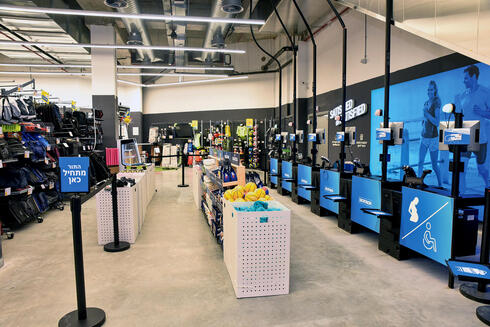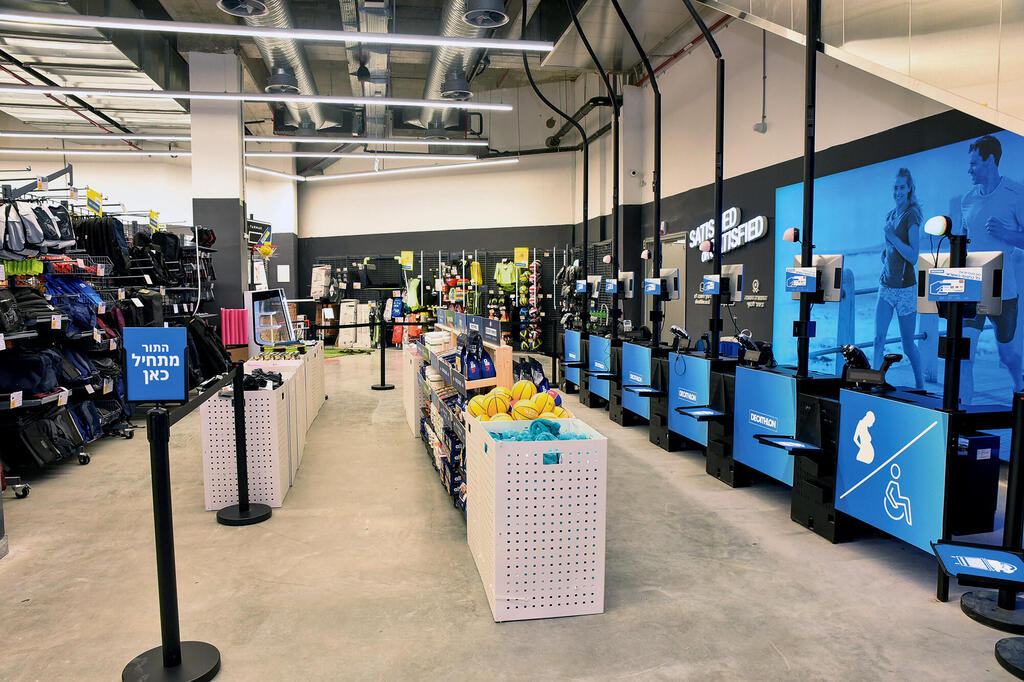
Decathlon launches global franchise shift, with Israeli sale in the works
Local retail veterans approached as sporting goods giant sells 11 stores.
The Decathlon sporting goods chain is shifting to a franchise model and has begun seeking buyers for its operations in countries where it currently runs branches. Calcalist has learned that the company has approached local players in the Israeli retail sector, offering to sell its operations in Israel. The deal is expected to be worth approximately NIS 100 million (approximately $28M), covering inventory from Decathlon’s 11 branches and the lease agreements for those stores. Until now, the global company has operated all its Israeli, and international, branches directly.
One major candidate to become the franchisee is George Horesh, the current franchise holder of the H&M chain in Israel. Another is the sporting goods chain Bashgal Sport, owned by Eli Dahan’s company Movement. The Fox Group is also a potential buyer. However, its holdings in the Nike import franchise and the Foot Locker chain could pose regulatory or competitive issues for the franchise application. Still, because Decathlon's main sales volume comes from private-label products rather than global brands, this may not be a dealbreaker.
Decathlon entered the Israeli market in 2017, opening its first store in the G Complex in Rishon Lezion. The chain sells a wide range of sporting goods, sportswear, camping gear, ski and sailing equipment, bicycles, tennis and ball games gear, and more. While it carries global brands such as Nike and Adidas, more than 50% of its sales come from its affordable private-label products.
In March, Decathlon appointed a new chairman, Julien Leclercq, son of the company’s founder, and a new CEO, Javier Lopez. The shift to a franchise model transfers responsibility for staff hiring and day-to-day operations to franchisees, thereby reducing the company’s operating costs. However, this model also means Decathlon will have less control over store standards and the implementation of its global policies.
Over the past year, Decathlon has been downsizing its retail footprint in Israel. It reduced store space by about a third in locations such as Netanya and Petah Tikva, which helped cut rent, wages, and property tax costs. In September, the company closed its Allenby Street store in Tel Aviv, replacing it with a smaller, 900-square-meter Decathlon City concept store in the Azrieli Mall.
At the store’s opening, Yann Paviot, CEO of Decathlon Israel, commented: “We are pleased with the results, otherwise, we wouldn’t be opening more stores. When I arrived, everyone said Israel is different. People here love to touch and try the products, especially children. Shopping is an experience. Israelis take their time and prefer to try things physically, online shopping is still limited compared to Europe, where 20% of sales are digital.”
For George Horesh, who also owns a third of Super-Pharm, this acquisition would mark his first foray into the sporting goods sector. He is also currently bidding, along with Harel Insurance, to acquire the credit card company Cal. Horesh’s investment arm, Union, managed by Eyal Golan, is active across real estate, energy, retail, industry, and more.
Movement, the second potential buyer, is focused on the wellness sector and promotes a healthy lifestyle through a combination of technology, services, and products. Just last week, it entered the nutritional supplements space with the acquisition of Harmony, a young Israeli supplement brand, for about NIS 6 million.
Decathlon, founded in 1976 in Lille, France, now operates in 79 countries with around 1,817 stores and 101,000 employees. The chain closed 2024 with €16.2 billion in global sales, a 5.2% increase compared to 2023. Its net profit was €787 million.
Decathlon declined to comment.














